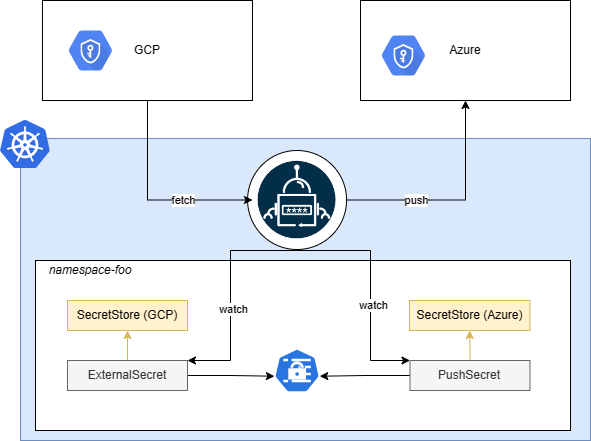* Updated docum of PushSecret Closes #2242 Signed-off-by: Sebastián Gómez <sebastiangomezcorrea@gmail.com> * Updated image and completed diagram file Signed-off-by: Sebastián Gómez <sebastiangomezcorrea@gmail.com> --------- Signed-off-by: Sebastián Gómez <sebastiangomezcorrea@gmail.com>
1.2 KiB
Contrary to what ExternalSecret does by pulling secrets from secret providers and creating kind=Secret in your cluster, PushSecret reads a local kind=Secret and pushes its content to a secret provider.
If there's already a secret in the secrets provided with the intended name of the secret to be created by the PushSecret you'll see the PushSecret in Error state, and when described you'll see a message saying secret not managed by external-secrets.
By default, the secret created in the secret provided will not be deleted even after deleting the PushSecret, unless you set spec.deletionPolicy to Delete.
{% include 'full-pushsecret.yaml' %}
Backup use case
An interesting use case for kind=PushSecret is backing up your current secret from one provider to another one.
Imagine you have your secrets in GCP and you want to back them up in Azure Key Vault. You would then create a SecretStore for each provider, and an ExternalSecret to pull the secrets from GCP. This will generetae kind=Secret in your cluster that you can use as the source of a PushSecret configured with the Azure SecretStore.
